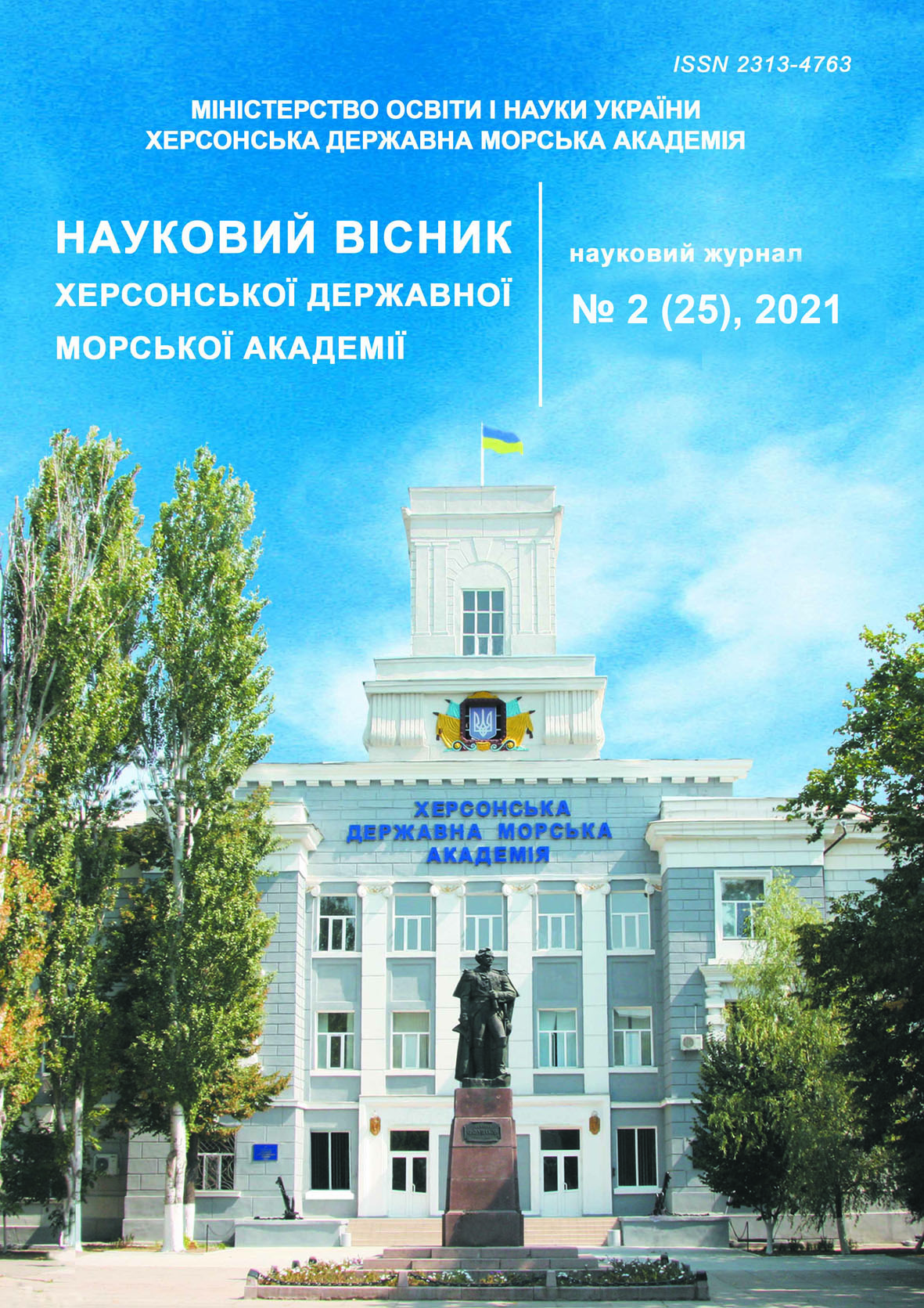DEVELOPMENT OF GREENING OF TRANSPORT AND LOGISTICS ACTIVITIES
10.33815/2313-4763.2021.2.25.018-027
Abstract
The paper considers the main directions of the negative impact of logistics systems on the environment. The main approaches to the greening of logistics processes in supply chains are highlighted. Theoretical analysis of the main problems of ecological character of functioning of logistic system of Ukraine is carried out and prospects of their decision are defined.
The classification of ecological damages according to which ecological damages to environment can be caused by three basic sources is investigated. The first source is the vehicle that was damaged. Typical examples in this case are vehicle breakdowns, as a result of which either fuels and lubricants (fuel) or cargo do not interact with the environment without authorization. This type of risk can be managed in several ways. The need to reduce the probability of such situations by influencing such factors as the level of wear of the material and technical base of transport enterprises is determined. Since the complete exclusion of the possibility of realization of such risk situations is excessively expensive, it is necessary to reduce the possible consequences of the realization of these risks. These effects can be reduced and / or offset by the creation of specialized highways that avoid collisions with the environment, the creation of a transport support system that will allow the rolling stock operator to receive qualified repair assistance in the shortest possible time, and much more. The next source of risk is transport tanks. Damage to transport tanks can cause environmental damage through the interaction of cargo and the environment.
The paper develops a ranking of environmental risks of the logistics process by the total level of potential damage. The given ranking is a basic classifier for the purpose of development of the system of the indicators characterizing stability of logistic process. These indicators should quantify the probability of realization of these environmental risks, as well as quantify the level of potential losses, but should be based solely on objective quantitative information that characterizes the logistics process.
References
2. Magrita N. O., Bilonigka U.Z. (2014). Sychasni tendentsii vprovadgennia “zelenoyj” logistiki. Marketing I meneddzhment inovatsiyj. vol. 1. 279–285.
3. Smirnov I. G. (2013). Geoekologichna orientatsia ypravlinnia logistikou vjrobnjchoservisnjx sisnem. Chasopjs sotsialjnoi geografii. vol. 2. T15. 11–16.
4. Cheklov V. F., Cheklova V.M. (2014). Peredumovih rozvihtky “zelenoyj” logistiki yf zaliznihchnomy transporti. Technology audit and production reserves. vol. 1/3(15). 43–45.
5. Tytov S. Nelogichna logistika Ykrainj. URL : http://racurs.ua/ua/1574nelogichna logistyka ukrayiny.
6. Brdulak H., Michniewska K. (2009). Zielona logistyka, ekologistyka, zrownowazony rozwoj w logistyce. Koncepcje i strategie logistyczne. Logistyka. vol. 8–15.
7. Gaddzhinskiyj A. M. (2012). Proektirovanie tovaroprovodiatjix system na osnove logistiki: ychebnik. Moskva : Izdat-vo “Dashkov & Ko”. p. 324.
8. Garrison A. (2010). Logistika. Strategia ypravlenia I konkyrirovania cherez tsepochki postavok: ychebnik. Moskva : Izdat-vo “Delo I servis”. p. 368.
9. Gvilia N. A. (2016). Logisticheskaia koordinatsia v korporatsiax i klasterax : monografia. Izdat-vo “CPbGY”. p. 103.
10. Grigorian M. G. (2018).Kluchevie pozitsii protsessa upravlenia organizatsionnijmi izmeneniami v logisticheskom biznese. Logistika i ypravlenie tsepiami postavok. vol. 3(86). 47–54.
11. Dolgov A. P. (2005). Logisticheskiyj menedzhment. Kontseptsia logistiki firmih: Ychebnoe posobie. Izdat-vo SPb Sanct-Peterbyrdzhzkogo gosydarstvennogo yniversiteta ekonomiki I finansov. p. 264.
12. Dydin M. N. (2016). “Zelenaia” logistika kak instryment obespechtnia ekologichescoyj bezopasnosti institytsionaljno-innovatsionnogo nedropoljzovania. Evropeyjskoyj Arktiki. vol. 3(27). T. 7. 8–17.
13. Zinger O. A. (2015). Faktorih, vliiauthie na ystoyjchivoe razvitie promihchlennih predpriatiyj. Sovremennihe problemih nayki I obrazovania. vol. 1–1. 8–10.
14. Kapystina L. M. (2016). “Zekenihe” texnologii v logisticheskoyj deiateljnosti. Izvestia Yrakjskogo gosydarstvennogo ekonomicheskogo yniversiteta. vol. 2(64). 114–122.
15. Karpov N. P. (29016). Ekologicheskaia logistika kak osnova strategii ystoyjchivogo razvitia kompanii. Ekonomicheskie nayki. vol. 2(23). 79–81.






